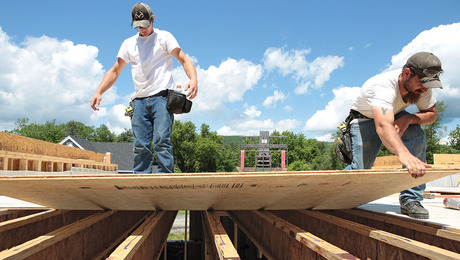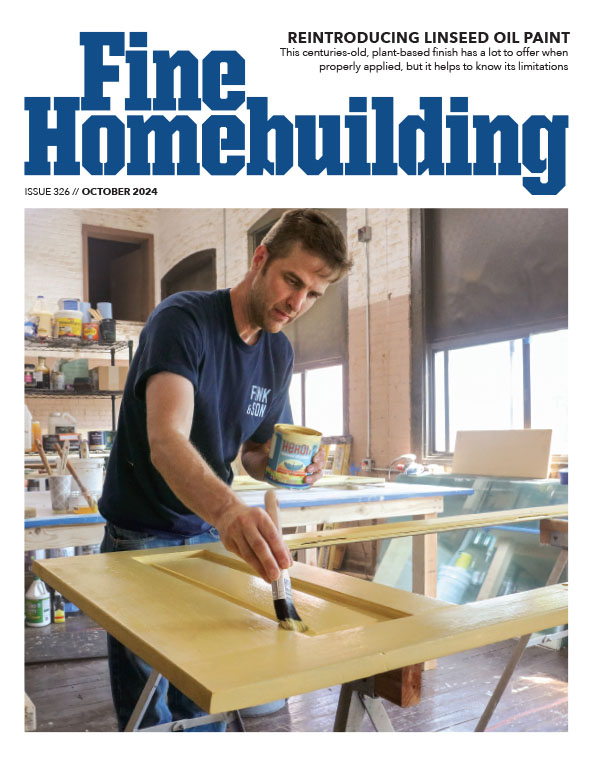I have a huge 4-inch cast iron heating pipe, at eye level, coming from my furnace/boiler. One of the previous owners built a bathroom around it but left the pipe running through the shower/bath! I have knocked down the old bathroom replumbed the drains and I am set to tackle the pipes. However I am a little intimidated. The pipes which actually come from the boiler are only 1 1/2 inch so I assume I can reduce the maximum size of the pipes to that. I wish to use thick wall copper pipe to replace the pipes I have. How do I remove this cast iron pipe? Cut it, try and unscrew the joints, or hammer it till it breaks? Does the copper pipe have to be secured to prevent noises? I am thinking cast iron joints 70 years old are going to be a problem. Should I hire a plumber or would a heating installer be cheaper? Thanks.
Discussion Forum
Discussion Forum
Up Next
Video Shorts
Featured Story

For a stable, flat, and squeak-free floor, you'll find that most new products are OSB.
Highlights
Fine Homebuilding Magazine
- Home Group
- Antique Trader
- Arts & Crafts Homes
- Bank Note Reporter
- Cabin Life
- Cuisine at Home
- Fine Gardening
- Fine Woodworking
- Green Building Advisor
- Garden Gate
- Horticulture
- Keep Craft Alive
- Log Home Living
- Military Trader/Vehicles
- Numismatic News
- Numismaster
- Old Cars Weekly
- Old House Journal
- Period Homes
- Popular Woodworking
- Script
- ShopNotes
- Sports Collectors Digest
- Threads
- Timber Home Living
- Traditional Building
- Woodsmith
- World Coin News
- Writer's Digest


















Replies
As far as replacing the pipe with copper etc.. I do not know as I'm no plumber. However, once you sort that question out, most rental places have the tool to cut the pipe. It looks like a large chain pipe wrench but each link holds a cutting wheel like a regular pipe cutter. I've cut many cast iron pipes with it in no time at all. The best thing is, with a little care the lead joints further down can be undisturbed. Where as banging the helloutathem will cause the joints to leak.
Good luck and post pics.
I would have someone check it out first, I can't imagine a 4" pipe in any heating system, in older homes they were usually the norm for waste lines.
Alan
If the house is that old and the hot water heat system is original to the house, it was very common to use a "gravity flow" arrangement for the water. The large piping allowed the water to move in a natural convection circuit - hot rises and cold falls - and would reduce the internal friction of pipe and fittings, etc. Using mechanical pumps to move the heating water didn't become common practice until sometime in the 1950's. Replacing it shouldn't be too much of a problem. Just be careful of the weight of cast iron and be sure to not leave any high pionts to cause an air lock in the system. Either a plumber or a heating person familiar with hot water heat should be able to help you out.